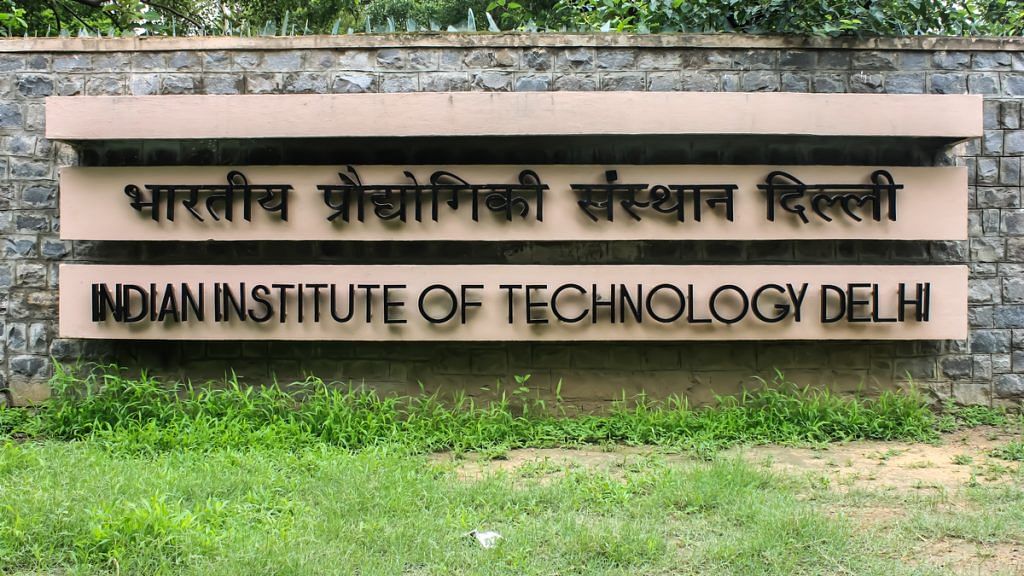New Delhi: Over 2,400 students have dropped out from the 23 Indian Institutes of Technology (IITs) in the last two years, with over half of them belonging to the general category. These dropouts are both at the undergraduate and postgraduate level.
According to data shared by the Ministry of Human Resource Development in Parliament last week, as many as 2,461 students dropped out of various IITs across the country, of whom 1,290 belong to the general category. The remaining 1,171 students are from the SC, ST and OBC categories.
Most of the dropouts have occurred in the older IITs — Delhi tops the list with 782 dropouts, followed by 622 in Kharagpur, 263 in Bombay, 190 in Kanpur and 128 in Madras.
The institutes on an average admit 9,000 students annually in undergraduate and 8,000 students in postgraduate courses.
While experts blame pressure, caste discrimination and postgraduate students taking up jobs as the reasons, the ministry told Parliament that it has taken the dropouts seriously and advised the institutions to take various corrective measures to improve the situation.
According to the ministry, the institutes have appointed advisers to monitor the academic progress of students, created a provision of additional classes for academically weaker students and provided counselling on family and personal issues.
The attrition rate, however, has shocked some IIT faculty members.
“I am shocked to see the huge dropout number but as far as I can understand the data, it is because of the M.Tech students who drop out after getting a job in a PSU where hiring typically happens in July,” said professor Dheeraj Sanghi who taught at IIT Kanpur.
“We have even requested the government to push the PSUs to hire in June so that we don’t have to deal with empty classrooms. On some occasions, we have even faced 60 students dropping out from an M.Tech batch of 80 and then we are forced to run the programme with just 20 students.”
IIT Delhi director V. Ramagopal Rao echoed his views but added that at the undergraduate level, most student quit as they can’t cope with the pressure of the curriculum.
“Attrition rates are higher at the M.Tech level because students leave for PSU jobs. Even the ministry is aware about PSUs hiring students after their course begins and we have taken it up with the PSUs but they don’t seem to come on board,” Rao told ThePrint.
“At the B.Tech level, students who drop out are mostly the ones who are not able to cope with the study pressure, many come from Hindi medium as well and have difficulties adjusting.”
Another faculty member at IIT Delhi, who wished to remain anonymous, said that most of the students who drop out at the undergraduate level are from the reserved category who are unable to keep up with the demands of the course.
Also read: IITs get new brief from Modi govt — work on indigenous defence technology
‘Caste-discrimination another reason’
Although more general category students have dropped out, the number of reserved students dropping out is higher in terms of proportion. Activists blame this on caste being a factor at these premier institutions, especially in the older IITs.
“The caste-based oppression in IITs is not direct but systematic,” Anoop Kumar, a documentary filmmaker, told ThePrint. “Most of the students who come to IITs under the reserved category are from non-English medium backgrounds and institutions do not make sure that the transition happens. There is no dearth of merit with these students but there is a problem with the language because of which students have to face difficulties.”
Kumar’s documentary, ‘Death of Merit’, is a three-part series with testimonies of families of students who committed suicide allegedly due to caste discrimination at these institutes.
Harvard scholar and Dalit rights activist Suraj Yengde, who has authored the book Caste Matters, also agrees with Kumar on caste-based discrimination in IITs.
“These institutes do not cater to the needs of people from reserved categories because they are occupied by people at the administration level and at faculty by people from the higher castes,” he said. “These Brahmanical professors are not used to socialising with marginalised people and when they have to, it becomes problematic.”
Naveen Kumar, an alumnus of IIT Delhi who has now formed a political party — Bahujan Azad Party — to work for reserved category students, also echoed their views.
“When I was a student, someone had written — ‘SCs, STs, not allowed here’ outside a person’s hostel room,” he said. “He went to complain to the dean but his complaint was not taken very seriously. I remember another incident where a professor rejected a girl from taking his course just on the basis of her name as she belonged to the reserved category.”
An IIT professor who has managed the IIT-JEE admissions and has been teaching at one of the institutes since 2003, however, disagreed.
“More than 2,400 students dropping out of IITs is a huge and unbelievable number, given the number of applications that we get each year,” he said. “But what is more unbelievable that there could be a caste angle to the dropouts. I do not feel that there is any kind of caste discrimination in IITs.”
The professor, though, said that reserved category students generally find it difficult to cope up with the pressure of studies once they enter the IIT system. “When students from reserved category get admission in IITs, the merit is lowered for them and sometimes we are even asked to take students who have not made the cut,” he added. “But once they enter the system, they have to face the real pressure and many are then not able to cope with it.”
Also read: The IITs have a long history of systematically othering Dalit students
